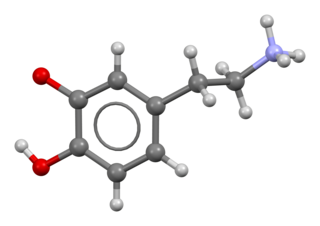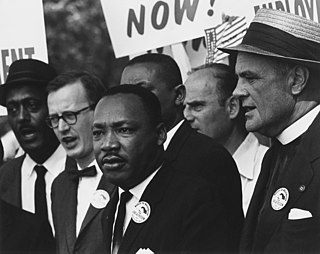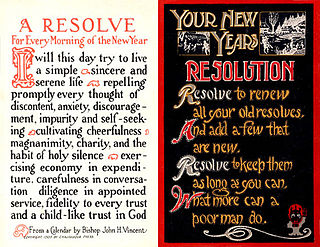 W
WMichael J. Apter is a British psychologist who was born in England and grew up in Bristol. He was educated at Clifton College (1965) and at Bristol University where he gained both his Bachelor of Science degree and his Doctorate in Psychology in 1965, having also spent a doctoral year at Princeton University. He taught for twenty years at Cardiff University in Wales and has since held invited positions at Purdue University, the University of Chicago, Yale University, University of Toulouse, and Georgetown University. He also taught at Northwestern University where he received a teaching award. He has held visiting positions at several additional universities and is a chartered psychologist and fellow of the British Psychological Society.
 W
WArise, awake, and stop not till the goal is reached is a slogan popularized in the late 19th century by Indian Hindu monk Swami Vivekananda, who took inspiration in a sloka of Katha Upanishad. It was his message to the world to get out of their hypnotized state of mind. This shloka is the basis of the title of the book The Razor's Edge and the 1946 film and the 1984 film, and also of various music albums in the west by bands like AC/DC, Dave Holland, etc.
 W
WA choice is the range of different things from which a being can choose. The arrival at a choice may incorporate motivators and models. For example, a traveler might choose a route for a journey based on the preference of arriving at a given destination at a specified time. The preferred route can then account for information such as the length of each of the possible routes, the amount of fuel in the vehicle, traffic conditions, etc.
 W
WCuriosity is a quality related to inquisitive thinking such as exploration, investigation, and learning, evident by observation in humans and other animals. Curiosity is heavily associated with all aspects of human development, in which derives the process of learning and desire to acquire knowledge and skill.
 W
WDelayed gratification, or deferred gratification, is the resistance to the temptation of an immediate pleasure in the hope of obtaining a valuable and long-lasting reward in the long-term. In other words, delayed gratification describes the process that the subject undergoes when the subject resists the temptation of an immediate reward in preference for a later reward. Generally, delayed gratification is associated with resisting a smaller but more immediate reward in order to receive a larger or more enduring reward later. A growing body of literature has linked the ability to delay gratification to a host of other positive outcomes, including academic success, physical health, psychological health, and social competence.
 W
WDopamine is a neuromodulatory molecule that plays several important roles in cells. It is an organic chemical of the catecholamine and phenethylamine families. Dopamine constitutes about 80% of the catecholamine content in the brain. It is an amine synthesized by removing a carboxyl group from a molecule of its precursor chemical, L-DOPA, which is synthesized in the brain and kidneys. Dopamine is also synthesized in plants and most animals. In the brain, dopamine functions as a neurotransmitter—a chemical released by neurons to send signals to other nerve cells. Neurotransmitters are synthesized in specific regions of the brain, but affect many regions systemically. The brain includes several distinct dopamine pathways, one of which plays a major role in the motivational component of reward-motivated behavior. The anticipation of most types of rewards increases the level of dopamine in the brain, and many addictive drugs increase dopamine release or block its reuptake into neurons following release. Other brain dopamine pathways are involved in motor control and in controlling the release of various hormones. These pathways and cell groups form a dopamine system which is neuromodulatory.
 W
WDrive: The Surprising Truth About What Motivates Us is the fourth non-fiction book by Daniel Pink. The book was published in 2009 by Riverhead Hardcover. It argues that human motivation is largely intrinsic, and that the aspects of this motivation can be divided into autonomy, mastery, and purpose. He argues against old models of motivation driven by rewards and fear of punishment, dominated by extrinsic factors such as money.
 W
WIn psychology, effortfulness is the subjective experience of exertion when performing an activity, especially the mental concentration and energy required. In many applications, effortfulness is simply reported by a patient, client, or experimental subject. There has been some work establishing an association among reported effortfulness and objective measures, such as in brain imaging. Effortfulness is used as a diagnostic indicator in medical and psychological diagnosis and assessment. It is also used as an indicator in psychological experimentation, especially in the field of memory.
 W
WExertion is the physical or perceived use of energy. Exertion traditionally connotes a strenuous or costly effort, resulting in generation of force, initiation of motion, or in the performance of work. It often relates to muscular activity and can be quantified, empirically and by measurable metabolic response.
 W
WThe Fish! Philosophy, modeled after the Pike Place Fish Market, is a business technique that is aimed at creating happy individuals in the workplace. John Christensen created this philosophy in 1998 to improve organizational culture. The central four ideas are: "choose your attitude", "play", "make their day" and the "present moment".
 W
WA goal is an idea of the future or desired result that a person or a group of people envision, plan and commit to achieve. People endeavour to reach goals within a finite time by setting deadlines.
 W
WThe phrase "God helps those who help themselves" is a motto that emphasizes the importance of self-initiative and agency. The expression is known around the world and is used to inspire people for self-help. The phrase originated in ancient Greece as "the gods help those who help themselves" and may originally have been proverbial. It is illustrated by two of Aesop's Fables and a similar sentiment is found in ancient Greek drama. Although it has been commonly attributed to Benjamin Franklin, the modern English wording appears earlier in Algernon Sidney's work.
 W
WGratification is the pleasurable emotional reaction of happiness in response to a fulfillment of a desire or goal. It is also identified as a response stemming from the fulfillment of social needs such as affiliation, socializing, social approval, and mutual recognition.
 W
WThe health action process approach (HAPA) is a psychological theory of health behavior change, developed by Ralf Schwarzer, Professor of Psychology at the Freie University Berlin of Berlin, Germany and SWPS University of Social Sciences and Humanities, Wroclaw, Poland, first published in 1992.
 W
WIn politics, humanitarian aid, and the social sciences, hunger is defined as a condition in which a person does not have the physical or financial capability to eat sufficient food to meet basic nutritional needs for a sustained period. In the field of hunger relief, the term hunger is used in a sense that goes beyond the common desire for food that all humans experience. The most extreme form of hunger, when malnutrition is widespread, and when people have started dying of starvation through lack of access to sufficient, nutritious food, leads to a declaration of famine.
 W
WAn incentive is something that motivates or drives one to do something or behave in a certain way. There are two types of incentives that affect human decision making. These are: intrinsic and extrinsic incentives. Intrinsic incentives are those that motivate a person to do something out of their own self interest or desires, without any outside pressure or promised reward. However, extrinsic incentives are motivated by rewards such as an increase in pay for achieving a certain result; or avoiding punishments such as disciplinary action or criticism as a result of not doing something.
 W
W"Is the glass half empty or half full?" is a proverbial phrase, used rhetorically to indicate that a particular situation could be a cause for pessimism (half-empty) or optimism, or as a litmus test to simply determine an individual's worldview. The purpose of the question is to demonstrate that the situation may be seen in different ways depending on one's point of view.
 W
WKeep Calm and Carry On was a motivational poster produced by the British government in 1939 in preparation for World War II. The poster was intended to raise the morale of the British public, threatened with widely predicted mass air attacks on major cities. Although 2.45 million copies were printed, and the Blitz did in fact take place, the poster was only rarely publicly displayed and was little known until a copy was rediscovered in 2000 at Barter Books, a bookshop in Alnwick. It has since been re-issued by a number of private companies, and has been used as the decorative theme for a range of products.
 W
WThe limbic system, also known as the paleomammalian cortex, is a set of brain structures located on both sides of the thalamus, immediately beneath the medial temporal lobe of the cerebrum primarily in the forebrain.
 W
W"Live, Laugh, Love" is a motivational three-word phrase that became a popular slogan on motivational posters and home decor in the late 2000s and early 2010s. By extension, the saying has also become pejoratively associated with a style of "basic" baby boomer decor and with what Vice described as "speaking-to-the-manager shallowness".
 W
WMalnutrition is 'a state of nutrition in which a deficiency or excess of energy, protein and other nutrients causes measurable adverse effect on tissue and body form and function and clinical outcome'. A diet that does not supply a healthy amount of one or more nutrients including protein, carbohydrates, fat, vitamins or minerals causes malnutrition. Majority of the studies use the term 'Malnutrition' to refer to undernutrition. However, the use of malnutrition instead of undernutrition prevents distinguishing between the issues of undernutrition and overnutrition. Overnutrition is a less acknowledged form of malnutrition. The Lancet Commission report suggested an all-encompassing definition for malnutrition indicating that all dietary risks including obesity and undernutrition that lead to poor health. World Health Organisation identified the double burden of malnutrition as the coexistence of undernutrition along with obesity or non-communicable diseases (NCD) from overnutrition.
 W
WA motivational poster, or inspirational poster, is a type of poster commonly designed for use in schools and offices.
 W
WA New Year's resolution is a tradition, most common in the Western World but also found in the Eastern World, in which a person resolves to continue good practices, change an undesired trait or behavior, accomplish a personal goal, or otherwise improve their life at the start of a new year.
 W
WAccording to the World Health Organization (WHO), occupational burnout is a syndrome resulting from chronic work-related stress, with symptoms characterized by "feelings of energy depletion or exhaustion; increased mental distance from one’s job, or feelings of negativism or cynicism related to one's job; and reduced professional efficacy." While burnout may influence health and can be a reason for people contacting health services, it is not itself classified by the WHO as a medical condition or mental disorder. The World Health Organization states that "Burn-out refers specifically to phenomena in the occupational context and should not be applied to describe experiences in other areas of life."
 W
WOptimism is an attitude reflecting a belief or hope that the outcome of some specific endeavor, or outcomes in general, will be positive, favorable, and desirable. A common idiom used to illustrate optimism versus pessimism is a glass filled with water to the halfway point: an optimist is said to see the glass as half full, while a pessimist sees the glass as half empty.
 W
WIn organizational behavior and industrial and organizational psychology, organizational commitment is an individual's psychological attachment to the organization. Organizational scientists have also developed many nuanced definitions of organizational commitment, and numerous scales to measure them. Exemplary of this work is Meyer and Allen's model of commitment, which was developed to integrate numerous definitions of commitment that had been proliferated in the literature. Meyer and Allen's model has also been critiqued because the model is not consistent with empirical findings. It may also not be fully applicable in domains such as customer behavior. There has also been debate surrounding what Meyers and Allen's model was trying to achieve.
 W
WThroughout China, many organizations have their workers gather outdoors before their shift for a pre-work assembly. They stand at attention in formation, wearing their work uniforms, grouped by position in the company. They face one or two managers, who give guidance, critique, or encouragement. Other assemblies engage in Guangchangwu. A less common kind of assembly practices marching.
 W
WProcrastination is the action of unnecessarily and voluntarily delaying or postponing something despite knowing that there will be negative consequences for doing so. The word has originated from the Latin word procrastinatus, which itself evolved from the prefix pro-, meaning "forward," and crastinus, meaning "of tomorrow." Oftentimes, it is a habitual human behaviour. It is a common human experience involving delay in everyday chores or even putting off salient tasks such as attending an appointment, submitting a job report or academic assignment, or broaching a stressful issue with a partner. Although typically perceived as a negative trait due to its hindering effect on one's productivity often associated with depression, low self-esteem, guilt and inadequacy, it can also be considered a wise response to certain demands that could present risky or negative outcomes or require waiting for new information to arrive.
 W
WA promotion is the advancement of an employee's rank or position in an organizational hierarchy system. Promotion may be an employee's reward for good performance, i.e., positive appraisal. Before a company promotes an employee to a particular position it ensures that the person is able to handle the added responsibilities by screening the employee with interviews and tests and giving them training or on-the-job experience. A promotion can involve advancement in terms of designation, salary and benefits, and in some organizations the type of job activities may change a great deal. The opposite of a promotion is a demotion.
 W
WIn psychological theories of motivation, the Rubicon model, more completely the Rubicon model of action phases, makes a distinction between motivational and volitional processes. The Rubicon model "defines clear boundaries between motivational and action phases". The first boundary "separates the motivational process of the predecisional phase from the volitional processes of postdecisional phase." Another boundary is that between initiation and conclusion of an action. A self-regulatory feedback model incorporating these interfaces was proposed later by others, as illustrated in the figure.
 W
WWish fulfillment is the satisfaction of a desire through an involuntary thought process. Wish fulfillment can occur in dreams or in daydreams, in the symptoms of neurosis, or in the hallucinations of psychosis. This satisfaction is often indirect and requires interpretation to recognize.
 W
WWork design is area of research and practice within industrial and organizational psychology, and is concerned with the "content and organization of one's work tasks, activities, relationships, and responsibilities" (p. 662). Research has demonstrated that work design has important implications for individual employees, teams, organisations, and society.